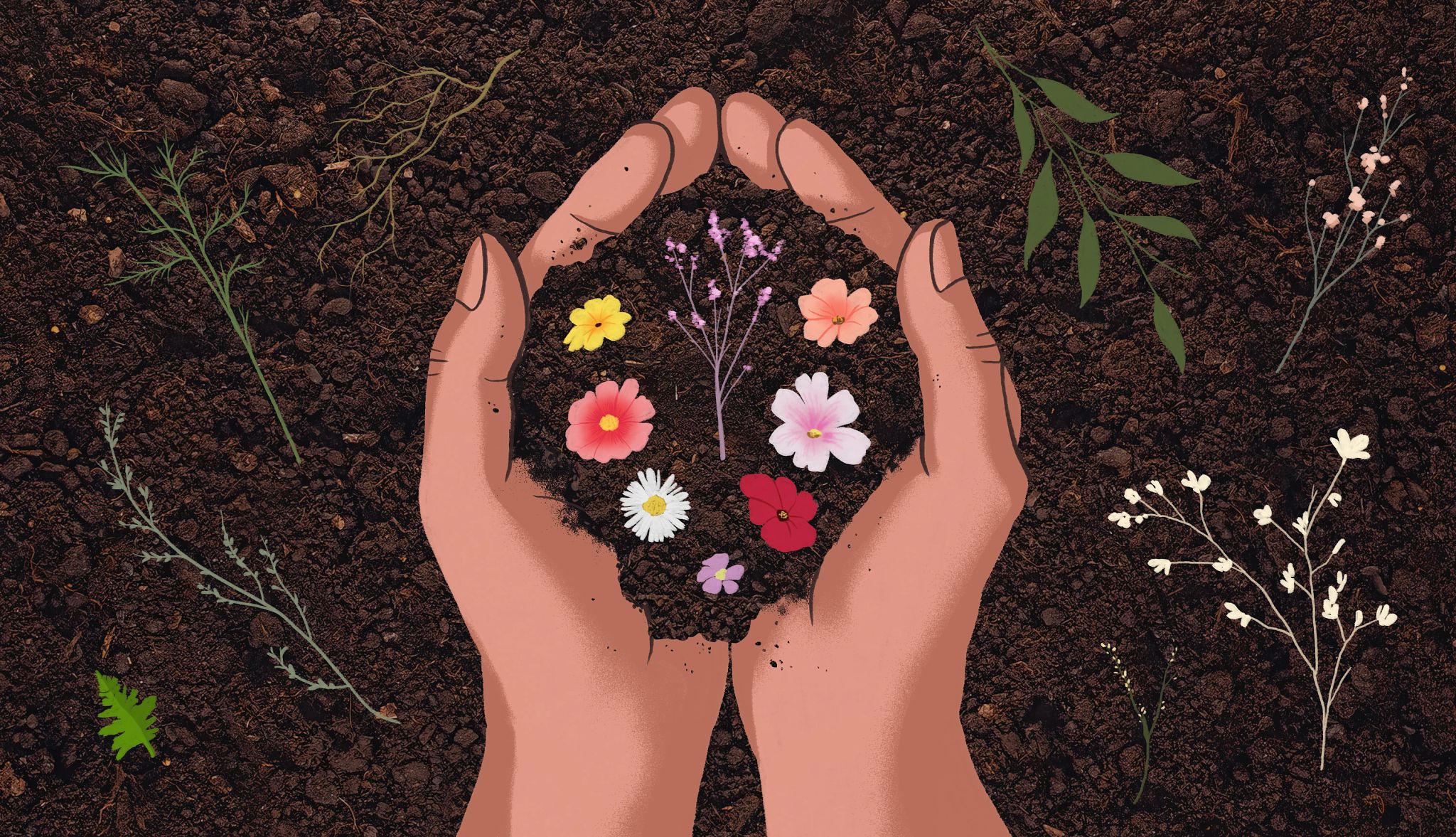
Human Composting: A New Take on the ‘Green’ Funeral
- Select a language for the TTS:
- UK English Female
- UK English Male
- US English Female
- US English Male
- Australian Female
- Australian Male
- Language selected: (auto detect) - EN
Play all audios:
Rob Dobi Facebook Twitter LinkedIn
It’s common to compost food scraps, yard waste, and other organic materials. But what about humans?
While radical and unconventional to some, human composting is the latest alternative in green funerals —environmentally friendly options that limit the use of chemicals and pollution for
burial.
The process, known as terramation, soil transformation and natural organic reduction, transforms a body into nutrient-rich soil suitable for fertilization — without the use of chemicals —
generally takes between one to three months.
“While it’s getting labeled as a new process, what we’re doing is actually as old as time,” says Tom Harries, CEO of Earth Funeral, which offers human composting services at facilities in
Auburn, Washington, and Las Vegas, Nevada. “What we’re doing is accelerating what happens to an organism naturally after it dies [by using] science and technology.”
Interest in green burials has been gaining ground for years. Sixty-eight percent of respondents surveyed in the 2024 National Funeral Directors Association’s Consumer Awareness and
Preferences Report would like to explore nontoxic end-of-life alternatives, compared with nearly 56 percent in 2021.
Human composting is now legal in 12 states. Washington was the first to legalize the option in 2019. In April 2024, Arizona became the eighth state to do so when Gov. Katie Hobbs signed
House Bill 2081, also known as the “Grandpa in the Garden Bill.”
Earth Funeral operates in Arizona, California, Idaho, Nevada, New Mexico, Oregon, Utah and Washington, and aims to open at least five more facilities over the next three years.
Here’s what to know about this end-of-life substitute for traditional burials and cremation.
Learn about the processAt Earth Funeral, bodies are placed inside a custom-built vessel, which optimizes temperature, moisture, and oxygen levels to create perfect conditions for microbes to break down the body at
a molecular level, according to Harries.
This takes 45 days.
Courtesy Earth FuneralSince launching in 2022, Earth Funeral has worked with more than 2,500 families.
The nutrient-rich soil that results weighs 300 pounds, on average. Because this is “obviously too much for most people” to scatter or plant, says Harries, families can donate any remaining
soil to one of the company’s conservation projects.
One of the projects is focused on restoring existing forest and emergent wetland ecosystems in a historically over logged, five-acre property on the Olympic Peninsula. The other is helping
to improve the habitat and soil at the base of the Sierra Foothills, including converting land formerly used for agriculture to a native oak savannah ecosystem.